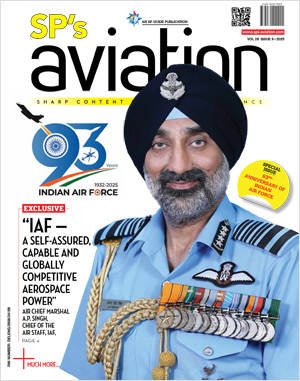INDIAN ARMED FORCES CHIEFS ON OUR RELENTLESS AND FOCUSED PUBLISHING EFFORTS

The insightful articles, inspiring narrations and analytical perspectives presented by the Editorial Team, establish an alluring connect with the reader. My compliments and best wishes to SP Guide Publications.

"Over the past 60 years, the growth of SP Guide Publications has mirrored the rising stature of Indian Navy. Its well-researched and informative magazines on Defence and Aerospace sector have served to shape an educated opinion of our military personnel, policy makers and the public alike. I wish SP's Publication team continued success, fair winds and following seas in all future endeavour!"

Since, its inception in 1964, SP Guide Publications has consistently demonstrated commitment to high-quality journalism in the aerospace and defence sectors, earning a well-deserved reputation as Asia's largest media house in this domain. I wish SP Guide Publications continued success in its pursuit of excellence.
- A leap in Indian aviation: Prime Minister Modi inaugurates Safran's Global MRO Hub in Hyderabad, Calls It a Milestone
- All about HAMMER Smart Precision Guided Weapon in India — “BEL-Safran Collaboration”
- India, Germany deepen defence ties as High Defence Committee charts ambitious plan
- True strategic autonomy will come only when our code is as indigenous as our hardware: Rajnath Singh
- EXCLUSIVE: Manish Kumar Jha speaks with Air Marshal Ashutosh Dixit, Chief of Integrated Defence Staff (CISC) at Headquarters, Integrated Defence Staff (IDS)
- Experts Speak: G20 Summit: A Sign of Global Fracture
The NATO Circus@75 & the War in Ukraine
Despite its 75 years of existence, NATO is faltering in its mission to safeguard Europe, as Ukraine continues to struggle in the war against Russia, even with NATO's comprehensive support
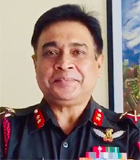 |
The Author is former Chief of Staff of a frontline Corps in the North East and a former helicopter pilot. He earlier headed the China & neighbourhood desk at the Defence Intelligence Agency. He retired in July 2020 and held the appointment of Addl DG Information Systems at Army HQ. |
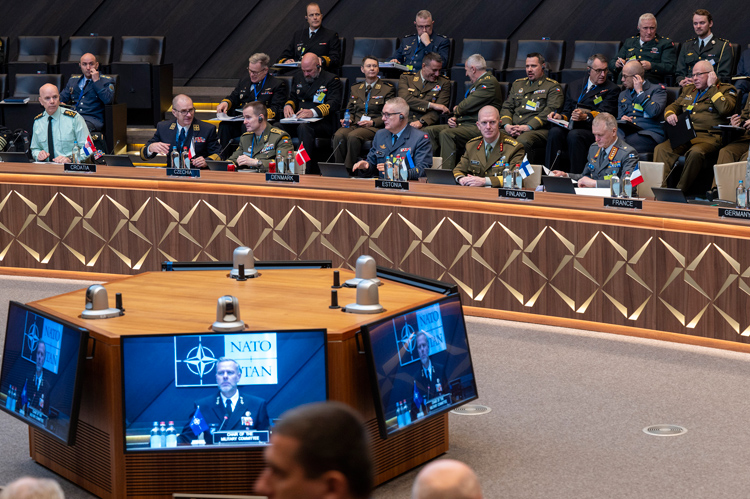
When the king knows that his army is neither powerful enough to attack the enemy nor can it defend itself from an invader, the king should seek help from superior kingdoms to control any damage and slowly raise the economy, says Chanakya in his seminal work, the Arthashastra. Ancient Greek general and author of the History of the Peloponnesian War, Thucydides tells us that alliances have been an enduring feature of war and conflict for thousands of years. Multilateral military arrangements allow states (and their historical analogues) to aggregate their capabilities and collaborate on common security challenges.
The birth of NATO and its Evolution
So was the NATO (North Atlantic Treaty Organisation) created on April 4, 1949, as a counterweight to the Soviet armies stationed in central and eastern Europe after World War II. Article 5 is the cornerstone of the NATO and states that an attack on one member of NATO is an attack on all of its members. Six years later, on May 14, 1955, the Warsaw Pact took shape, the immediate trigger being the Paris agreement among the Western powers admitting West Germany to the NATO. The Soviet Union dramatically collapsed and the Warsaw Pact formally declared "non-existent" at a final summit meeting of leaders in Prague, Czechoslovakia on July 1, 1991.
Article 5 is the cornerstone of the NATO and states that an attack on one member of NATO is an attack on all of its members
After the demise of Soviet Union, dissolution of the rival Warsaw Pact, and with the successor state Russia on the verge of bankruptcy in late nineties, it was logical to expect the NATO to wind up too. But exactly the opposite happened. NATO has not stopped expanding since, growing from 17 countries in 1990 to 34 today. Most were once part of the Warsaw pact. A relatively weak Russia under Boris Yeltsin was in no position to contest the accession of its former republics into NATO in the 1990s and early 2000s. It could also do nothing to counter the devastating Kosovo bombing by NATO in 1999 using between 9 to 11 tonnes of toxic depleted uranium that cause leukaemia, genetic, reproductive and neurological disorders.
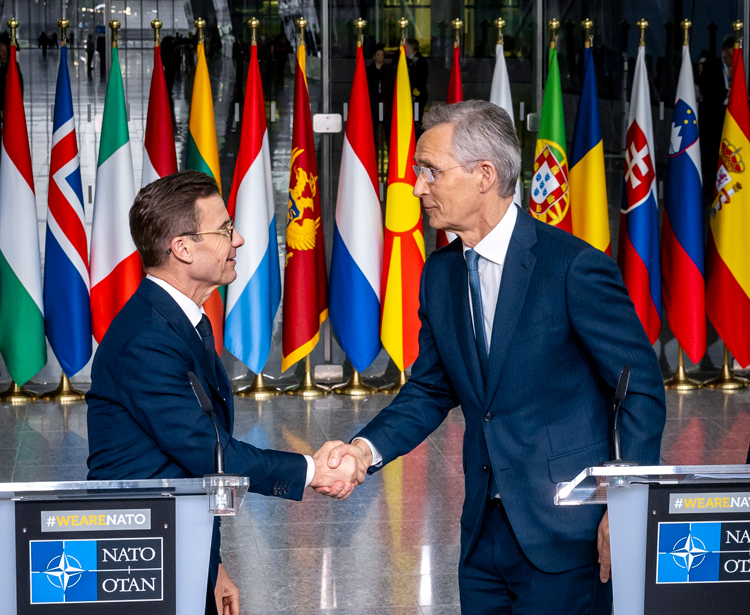
Russia's Relations with NATO
The 2008 Bucharest declaration opening doors for admitting Georgia and Ukraine into NATO met with fierce opposition by Russia under an assertive leader, Vladimir Putin. It resulted in deadly wars and breakaway territories of Abkhazia and South Ossetia in Georgia, with forceful Russian intervention. It sowed seeds of deep suspicion in the minds of Russian leadership which now viewed NATO as principally focussed in undermining and decimating Russia as a power despite the fact that early on in his rule, Putin had evinced keen interest to join the alliance.
NATO has not stopped expanding since, growing from 17 countries in 1990 to 34 today
George Robertson, a former UK Defence Secretary who led NATO between 1999 and 2003, has said that Putin made it clear at their first meeting that he wanted Russia to be part of western Europe. "They wanted to be part of that secure, stable prosperous west that Russia was out of at the time," he said. The account chimes with what Putin told the late David Frost in a BBC interview shortly before he was first inaugurated as Russian President more than 24 years ago. Putin told Frost he would not rule out joining NATO "if and when Russia's views are taken into account as those of an equal partner".
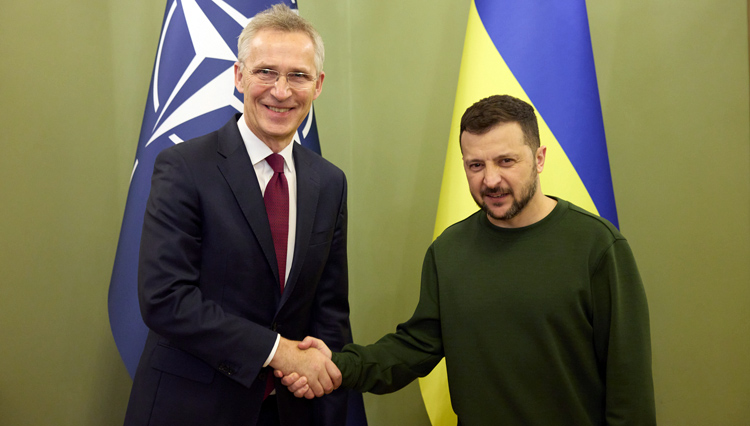
Putin had told Frost then that it was hard for him to visualise NATO as an enemy. "Russia is part of the European culture. And I cannot imagine my own country in isolation from Europe and what we often call the civilised world." In the backdrop of the war in Ukraine, those who paint Putin as a hallucinating dictator eyeing to re-establish the Russian empire of yesteryears must therefore introspect.
Russia had tried earlier too, in 1954, when the Soviets under Nikita Khrushchev sent the letters of intent for NATO membership. But this was rejected by the US led west fearing that allowing the USSR to have a say in NATO affairs would neutralise NATO the way it neutralised the UN Security Council with its veto powers. Khrushchev went on to form the Warsaw Pact in 1955.
US Hegemony and Muscle Flexing
Emerging unscathed from the WW II unlike Europe and Russia which were extensively devastated and in ruins, the US flexed its newfound superpower status to take control of Europe through the twin instruments of NATO and the Marshall Plan which while helping rebuild Europe also took control of its governing institutions. The American deep state, working in tango with the vast Military Industrial Complex that hugely ramped up during WW II and the oil and gas lobbies, has continued to invent enemies and feed the global arms bazaar. After the fall of Soviet Union, it cemented its hegemony as the unchallenged sole superpower.
Emerging unscathed from the WW II, the US flexed its newfound superpower status to take control of Europe through the twin instruments of NATO and the Marshall Plan which while helping rebuild Europe also took control of its governing institutions."
The CIA directed Orange revolution saw the overthrow of pro-Russian Ukraine President Yanukovych in February 2014. Consequently, Russia annexed Crimea to protect its Black Sea Fleet. Russia was expelled from G8 in March 2014 and this marked the beginning of isolating and cornering Russia. The Ukraine war has continued since, over ten years in varying tempo.
NATO's questionable future
Despite hundreds of billions of dollars' worth NATO arms having been pumped into Ukraine along with intelligence and targeting wherewithal, Ukraine today is largely devastated, most cities turned into mangled concrete and a third of its population fleeing abroad as refugees. Its aspiration to join NATO has cost it dearly.
Despite hundreds of billions of dollars' worth NATO arms having been pumped into Ukraine along with intelligence and targeting wherewithal, Ukraine today is largely devastated, most cities turned into mangled concrete and a third of its population fleeing abroad as refugees
The NATO itself is staring at a bleak future as it just celebrated 75 years of existence. The newest member Sweden recently announced that the Riksbanken, its central bank had lost some 44 billion kr (£3.2 billion) or half its defence budget, and needed that much money from the state in order to stay afloat. Most NATO members, except Turkey, have boutique armies with a few brigades barely capable of showing the flag in multinational operations. European NATO members including Germany and the UK stare at recession and deindustrialisation due to high energy costs after snapping natural gas flow from Russia. The sway of petrodollar is waning. Anti-Gaza war protests roil their streets while Turkey, with the second largest military in the NATO after the US, sits on the fence.
Meanwhile, the forces arrayed on the other side are rallying their informal alliance. Energy rich Russia, global manufacturing hub China and oil-rich Iran coalesce with rogue elements like North Korea and Yemen to put NATO on notice.





